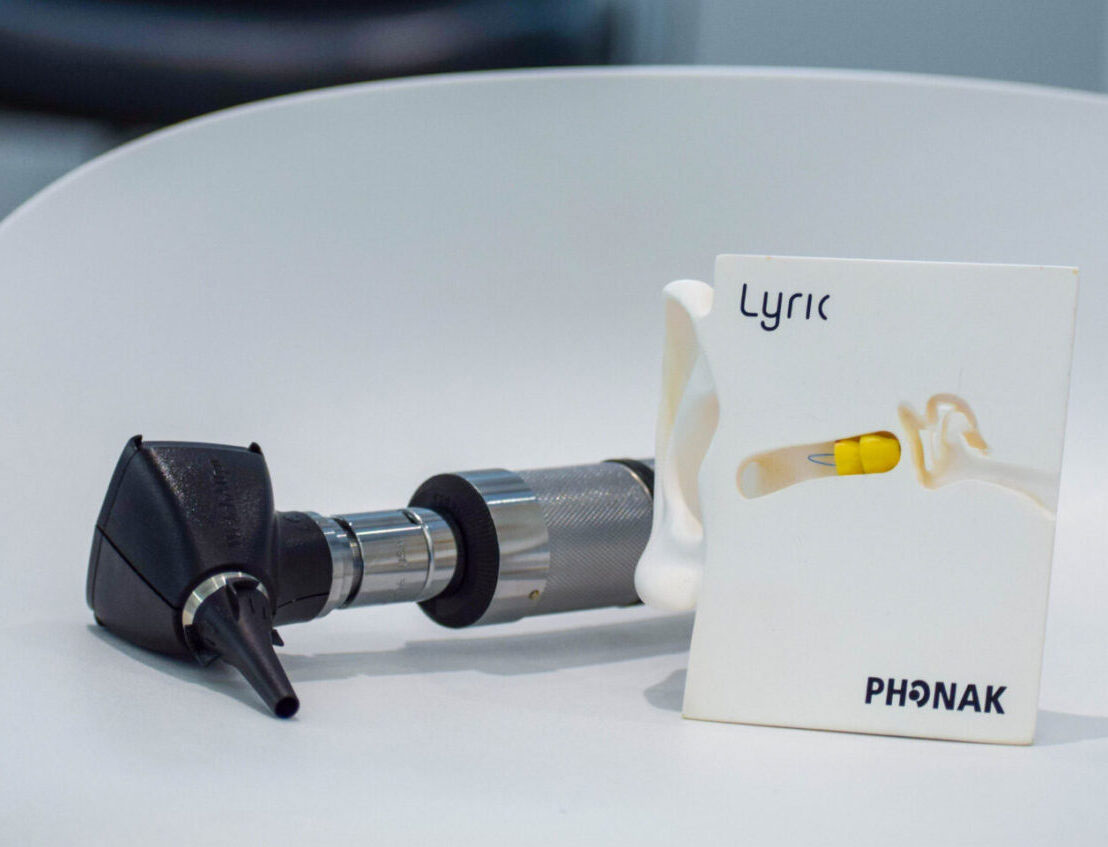Our Services
Hearing Testing
Admitting that you have a hearing loss can be difficult at first, but you're not alone. People with hearing loss often wait an average of seven years to take action when the issue can easily be addressed with hearing aids.
Studies have shown that once people begin using hearing instruments, they also enjoy an improvement in social, emotional, psychological, and physical well-being.
If you’re experiencing symptoms of hearing loss, call us today to book your hearing assessment.
Symptoms of Hearing Loss
The Hearing Test Process
Upon entering a soundproof booth, headphones will be placed on your ears. Afterward, you are presented with a range of different pitched beeps or sounds and you will be asked to respond when you hear the sound by pressing a button.
The presentations will be made separately in each ear where the loudness of each tone is reduced until you can just hear the tone. The softest sounds you can hear are known as your hearing thresholds, and these are marked on a graph called an audiogram. Your audiogram tells us a lot about the type and degree of your specific hearing loss.
Next, you will be asked to repeat words that get softer and softer. This allows us to evaluate the lowest level as to which you can detect speech. You will then be presented with words at a comfortable listening level in both quiet and noisy intervals to evaluate how well you can discriminate speech sounds.
A probe will be placed in your ear and you will feel a slight change as it measures the pressure and movement of your eardrum. Afterward, you will hear louder tones which are used to evaluate the contraction of the stapedius muscle or acoustic reflex in the middle ear.
Since the equipment measures the responses you will not need to respond to these sounds.
A probe will be placed in your ear and soft sounds will be heard. This is done to evaluate how the outer hair cells in your ear are responding and just like the previous test, you don’t need to respond to these sounds.
Hearing Aid Evaluation

What to Consider When Buying Hearing Aids
If you wish to try hearing aids, book an appointment to have one of our Audiologists fit you with a complimentary set of demos for a two-week trial with no obligation.
Ear Wax Removal
Ear Wax Build-Up
A normal ear canal has a self-cleaning mechanism, where the small hairs in the canal push the wax towards the canal. There are also certain circumstances that result in ear wax build-up that may need removing. These include narrow ear canals or the use of hearing aids.
If you feel fullness in the ear, muffled hearing, or mild tinnitus you could have impacted wax that needs to be removed.
Our Earwax Removal Service
At Toronto Audiology Associates, we use three methods of wax removal that are safe and effective; curettage, endoscopic microsuction, and irrigation using the Earigator.

Tinnitus Management
Do you hear a ringing, roaring, clicking, or hissing sound in your ears with no external sound source? Do you hear this sound often? Does the sound bother you a lot? Is it interfering with your enjoyment of life or your sleep?
If you answered yes to any of these questions, you may be suffering from tinnitus and should see a hearing professional. Millions of people are currently suffering from tinnitus, and a large proportion of them think that there is nothing they can do about it.
Although there is currently no cure for tinnitus, there are still a variety of treatment options that are available to you. You can visit our clinic for initial testing and consultation to evaluate which tinnitus management plan is right for you.
They often include a medical referral, hearing aids, sound generators, cognitive behavioral counseling, and stress reduction techniques.
Tinnitus Management
Do you hear a ringing, roaring, clicking, or hissing sound in your ears with no external sound source? Do you hear this sound often? Does the sound bother you a lot? Is it interfering with your enjoyment of life or your sleep?
If you answered yes to any of these questions, you may be suffering from tinnitus and should see a hearing professional. Millions of people are currently suffering from tinnitus, and a large proportion of them think that there is nothing they can do about it.
Although there is currently no cure for tinnitus, there are still a variety of treatment options that are available to you. You can visit our clinic for initial testing and consultation to evaluate which tinnitus management plan is right for you.
They often include a medical referral, hearing aids, sound generators, cognitive behavioral counseling, and stress reduction techniques.

Custom Hearing Protection
We offer a variety of earplugs that are perfect for various activities like sleeping, swimming, and more. Whether you work with noise machinery, shrieking kids, or noisy gyms, we can help you protect yourself from hearing loss.
You can purchase a variety of the following at our clinic; noise plugs, acoustic-filtered plugs, musician plugs, swim plugs, and sleep-eez plugs.
Auditory Processing Disorder
An auditory processing disorder (APD) is a disruption of sound along the pathway from the ear to the brain which interferes with understanding. The ears do not work alone to decipher incoming information and the brain helps with language, cognition, and memory skills.
At our hearing clinic, a complete set of tests are done on normal-hearing adults and children with a developmental age of 7 years or older. We evaluate skills such as temporal sequencing, speech in noise, low redundancy speech, binaural separation, binaural integration, and auditory memory.
Once the test results are done, we will provide a list of recommendations for modification of the acoustic environment, assistive listening technology, and direct intervention therapies.
Signs of Auditory Processing Disorder
If you or your child are experiencing a number of these symptoms, it is recommended that you undergo a complete hearing assessment. This should include audio processing tests by an audiologist.
